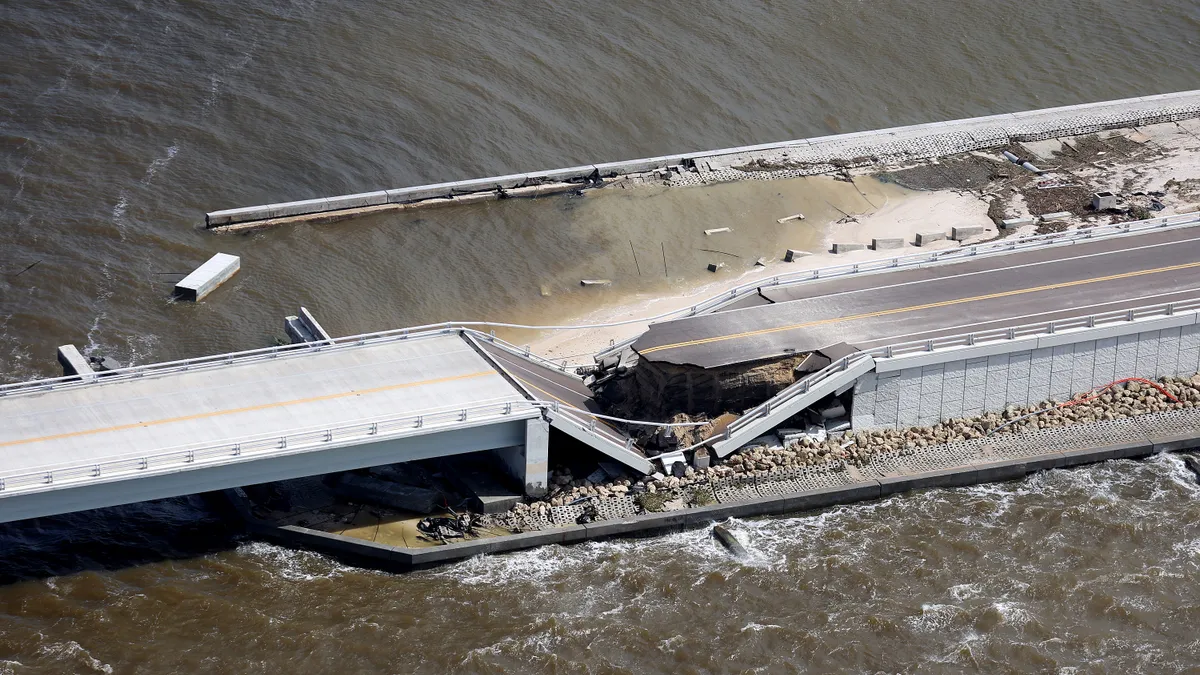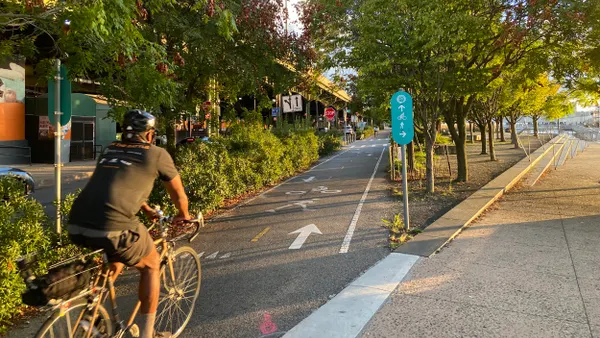Dive Brief:
- The Federal Highway Administration is providing $729.4 million to help states rebuild roads and bridges following natural disasters, the agency announced Jan. 23.
- Hurricanes, flooding, mudslides and other events declared major disasters will receive reimbursement funding under the FHWA’s Emergency Relief program. The program is part of the DOT and Biden administration’s effort to respond to climate change.
- Along with repairs, funding will also enable resiliency improvements in order to protect the traveling public from further damages from extreme weather.
Dive Insight:
As natural disasters driven by climate change ramp up, every sector is grappling with resilience, said Jill Kurth, AECOM’s Los Angeles Metro executive, in an interview with Construction Dive. Jurisdictions are responding to climate breakdown in a variety of ways, from undergrounding utilities for wildfire prevention to building seawalls and reconfiguring roads and bridges to mitigate flooding.
“Climate readiness is now being seen as a public safety issue,” said Kurth.
The Emergency Relief program funding is heading to 34 states, the District of Columbia, the U.S. Virgin Islands and Puerto Rico. The money will fund continued repairs from the 2022 flooding in and around Yellowstone National Park; damage from hurricanes Ian, Fiona, and Nicole in 2022; flooding and mudslides in Vermont in 2023; and other natural disasters across the country.
The Emergency Relief Program does not cover all rebuilding costs, but rather supplements federal, state, local and tribal transportation agencies’ repair programs. The program got a funding boost from the $1.2 trillion Infrastructure Investment and Jobs Act.
“Climate change is devastating communities across the U.S., in every state,” said FHWA Administrator Shailen Bhatt in the release. “Our transportation system was not designed to handle the climate impacts we are seeing in the 21st century.”












